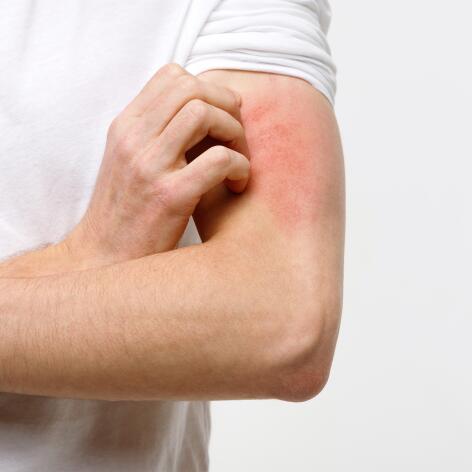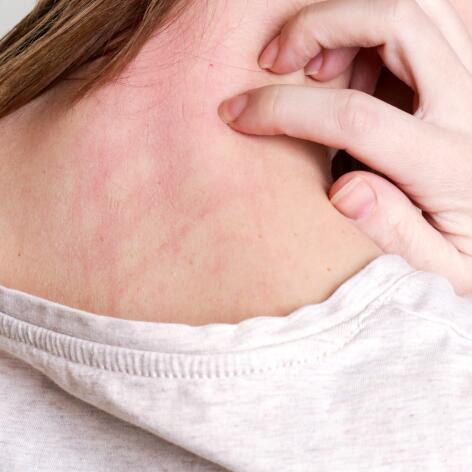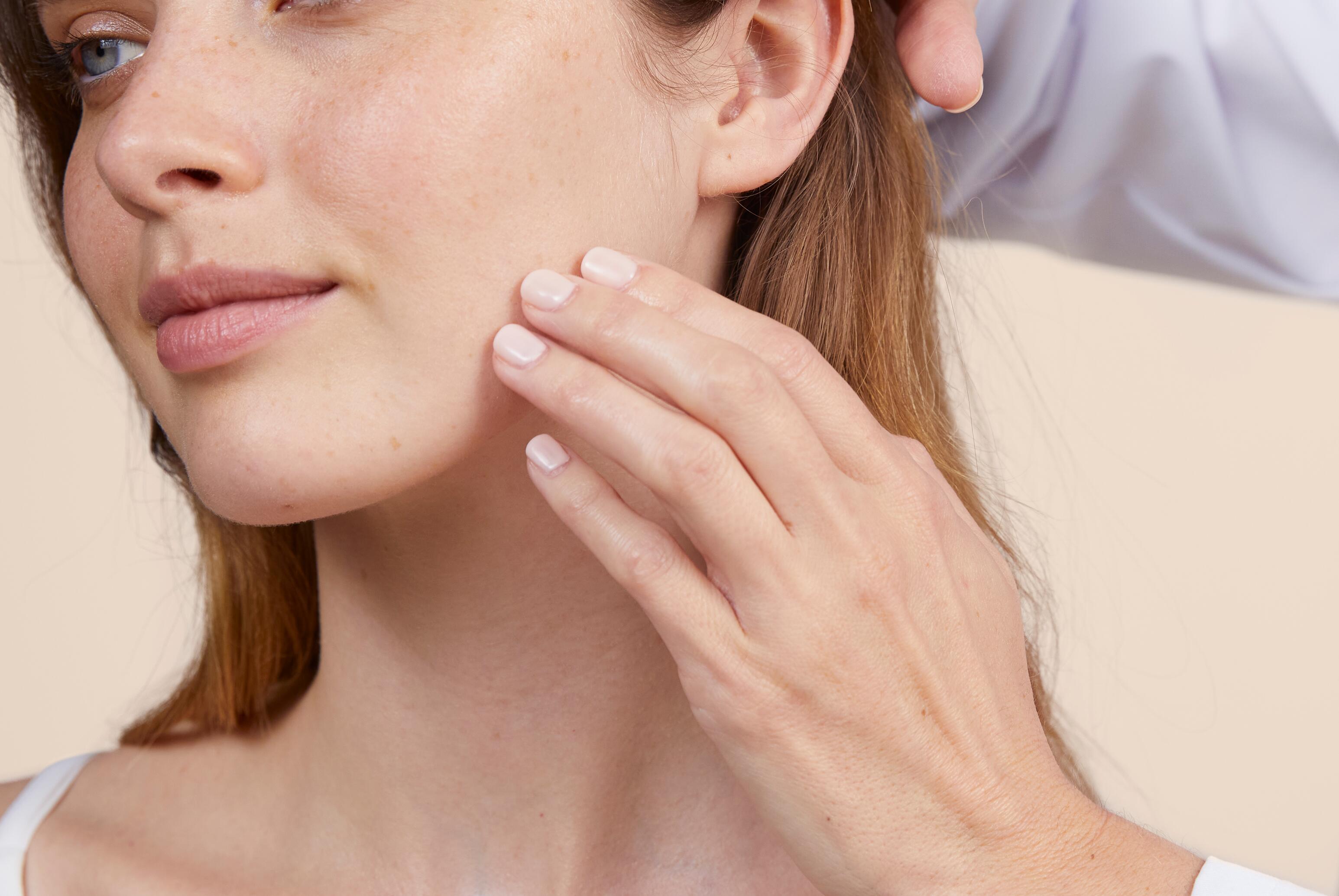Prevent your skin from burning during and after radiotherapy
The side effects of radiotherapy vary from patient to patient. However, there is one that is more common than others: the risk of burns. There are simple things you can do to help soothe your skin.

Radiotherapy: why does it burn?
Radiotherapy is the use of radiation to destroy the tumour or reduce its size. To reach the tumour, it needs to pass through superficial tissue. Although the rays themselves are painless, they can cause inflammation, resulting in a hot sensation or burning in the irradiated area. This is known as “ radiodermatitis ”.
What is radiodermatitis?
In its initial stage, radiodermatitis resembles a severe sunburn (although the mechanism is not the same as a UV-induced burn): the skin is red, dry, hot, swollen and gradually begins to peel. However, ten days after radiotherapy, your burns should start to resolve on their own. In the meantime, you can take action to relieve (and sometimes even prevent) them.

The radiotherapy really burned me under the breast. I was very close to stopping but was advised to use cream after the radiotherapy sessions. This was valuable advice!
Isabelle
How to calm the inflammation?
There are simple steps and easy-to-use supportive care products to relieve you during your treatments.
Indispensable hydration
Moisturise the treated area every day. Choose an emollient cream and use it after every radiotherapy session (never before). In fact, use your emollient as soon as you start treatment. You will reduce the risk of developing radiodermatitis. On the other hand, avoid products that are too greasy, which could worsen the effect of the rays, and do not apply any cream in the four hours before your session. After the session, and in case of irritation, apply a compress of thermal spring water and, after having dried the skin carefully, generously apply a repairing and protective cream.
Fight perspiration
Sweating promotes radiodermatitis. To reduce the risk of lesions, pay particular attention to the folds (e.g. under the breasts). Opt for loose-fitting cotton clothing and, for women, underwear without underwire to avoid irritation.
FRIENDLY (AND EXPERT) ADVICE
What’s a suitable daily routine for burns?
During your treatment, your skin will be more sensitive. To not exacerbate the effects of radiotherapy, you should take care of it. Soaps, both liquid and solid, are drying and irritating. Instead, turn to cleansing oils or ultra-rich cleansing bars that you apply with your hands without rubbing. Warm showers are preferable to hot baths, which may cause excess heat to the irritated area. Dry yourself gently, dabbing with a clean, soft towel, and paying special attention to the folds that retain moisture (under the arms, neck, groin folds). And don't use any products containing fragrance or alcohol, which can be irritating.

The rules of sun exposure
During and in the months following radiotherapy treatment, your skin will be sensitive to sunlight. Firstly: avoid any exposure. Protect the irradiated area and if you really have no choice but to expose yourself to the sun, apply a sun care product that contains a photoprotective complex, with very broad and stable UVB-UVA protection and optimal skin tolerance.
Protecting your skin from the side effects of cancer treatments
Our solutions for relieving irritation during radiotherapy
Eau Thermale Avène skincare products designed to help you feel better about your skin
- Avène Thermal Spring Water Spray
Thermal Spring Water
Avène Thermal Spring Water SpraySoothes - Restores the skin barrier - Calms
NEWSLETTER
We’re always here for your skin!
All our tips for taking care of your skin day to day.

Which skin care routine should you adopt?
Identify what it really needs with the help of our experts and discover the most suitable skin care routine for you.

